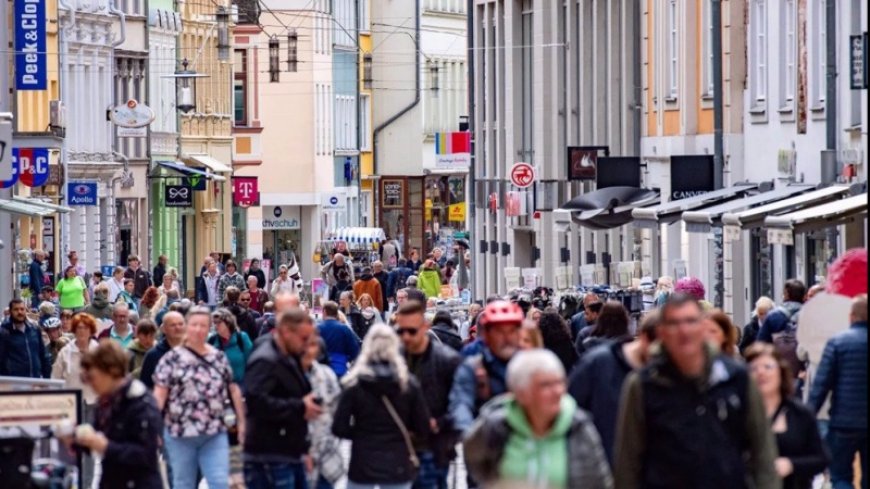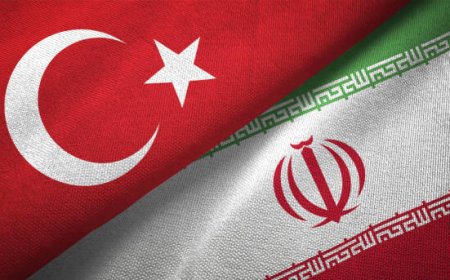German Economy Nears Recession Amid Support for Ukraine
At the onset of the year, the German economy slipped into a recession and remained stagnant in the second quarter. Many attribute the circumstances to the state aid provided to Ukraine in light of the conflict with Russia.

According to the latest data from the Federal Statistical Office (Destatis), released on Thursday, German exports in August experienced a sharper decline than anticipated, further indicating that Europe's largest economy may be heading back into recession.Exports totaled 127.9 billion euros, marking a 1.2 percent decrease compared to the previous month. Imports, on the other hand, decreased by 0.4 percent in July, amounting to 111.4 billion euros."Like the rest of the German economy, exports are hovering in the border zone between recession and stagnation," noted Carsten Brzeski, an economist at ING Bank. "The risk of the German economy slipping back into recession in the third quarter remains high."
The disappointment in August was primarily attributed to a 2.6 percent drop in exports to other Eurozone countries.Last week, leading economic institutes in Germany announced an anticipated 0.6 percent decline in Gross Domestic Product (GDP) for the year 2023.The International Monetary Fund has projected Germany to be the only major advanced economy contracting this year.Shipments to the United States, the primary destination for goods "Made in Germany," declined by 1.3 percent compared to the previous month.High inflation, an industrial downturn, and weaker demand from China, a key trading partner, have weighed heavily on Europe's economic powerhouse in recent months.
Reports suggest that Germans, accustomed to decades of prosperity, are now grappling with concerns about job security and apprehension about preserving their past achievements. Many, particularly those with lower incomes, are experiencing a significant erosion of purchasing power.Despite record levels of corporate insolvencies across European countries, Germany and several other EU states continue to supply arms to Ukraine under pressure from the United States.The skyrocketing energy prices have cost Europe nearly a trillion US dollars, according to a recently released report, which states that the current situation is a consequence of the war in Ukraine and represents the beginning of the deepest crisis in decades.
The conflict between Russia and Ukraine has also driven up oil and gas prices. Europe heavily relies on Russia for a significant portion of its energy needs. The elevated prices are likely to trigger a global recession.Ukrainian President Volodymyr Zelensky announced on Thursday, following a meeting with German Chancellor Olaf Scholz at a summit in Spain, that Germany is working to send an additional Patriot air defense system to Ukraine for the winter months. Zelensky expressed gratitude for Germany's support in defending their freedom and nation via social media.During a summit of the European Political Community in Grenada, Scholz reaffirmed that Germany is actively working on delivering an additional Patriot anti-aircraft missile system to Ukraine for the winter months.
The German Chancellor emphasized that Russia is expected to once again pose a threat to Ukraine's infrastructure and cities with missile and drone attacks this winter, making air defense a top priority.He also praised the unconditional support from Washington for the Ukraine conflict. "President Biden spoke with me and others the day before yesterday about the issue of U.S. support and assured us that he is very confident that the American Congress will continue to provide the necessary support to Ukraine in the future."
"Both parties in the U.S. Congress overwhelmingly want to support Ukraine," added the German Chancellor in reference to the U.S. President.According to Russia, the operation in Ukraine aimed to protect the pro-Russian population in the eastern Ukrainian regions of Luhansk and Donetsk from persecution by Kiev. Since the start of the war, Kiev's allies, led by the United States and the United Kingdom, have been supplying Ukraine with weapons. Russia contends that this only prolongs the conflict.
Deutsche Welle













































